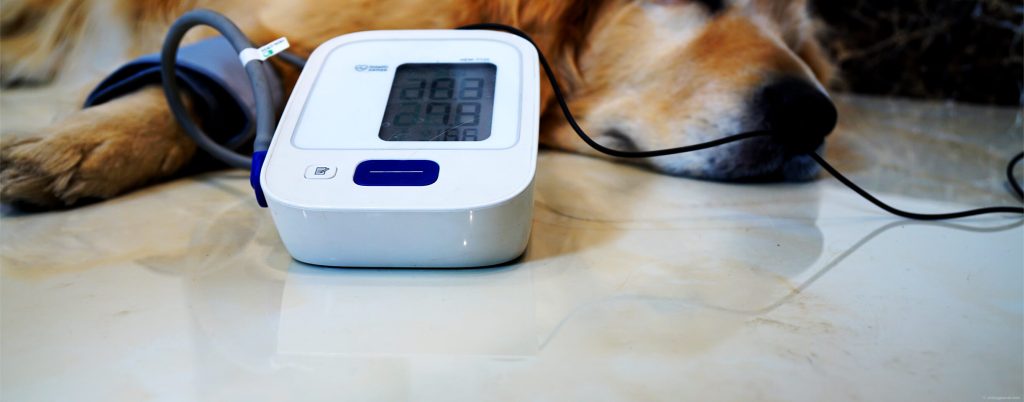Old dog shivering but not cold is a symptom that dog owners should be aware of, as it differs from adult dogs shaking due to excitement or fear. In general, the shivering of old dogs is frequently associated with their own diseases. When this symptom appears, we should first look for other symptoms that are accompanied by tremors in order to determine the cause of her trembling as soon as possible.
Here are the different symptoms of shivering in older dogs:
Shivering only in the legs
Generally speaking, when shivering is only in the legs, it is likely a sign of joint pain in dogs. Here are the types of older dogs more likely to shiver from joint pain:
Types of older dogs more likely to shiver from joint pain
- Specific breed
- Arthritis is very common in older dogs, particularly large dog breeds such as Labrador, Golden Retriever, German Shepherd and Rottweiler, which have higher rates of arthritis morbidity than other breeds, and if your dog also has CHD, its arthritis tends to be worse when aged.
- Overweight dogs
- Overweight is common in senior dogs, and the joint burden of overweight dogs is significantly greater than that of normal-weight dogs. With increasing age, joint lubricant is gradually lost and articular cartilage wear is accelerated, making obesity a serious burden on joints.
- Some breeds, such as Basset Hounds, Bulldogs, Beagles, Dachshunds, Golden Retrievers, Labrador Retrievers and Pugs, gain weight faster than others.
How to relieve shivering caused by joint pain
Supplements containing ingredients listed below can effectively lubricate joints, reduce inflammation and pain, and alleviate arthritis symptoms: (Please refer to this blog post to learn more about joint disease)
- Chondroitin sulfate
- Glucosamine
- Calcium fructoborate
- Fish oil rich in Omega-3
In addition to the ingredients listed above, attempts have been made to give dogs MSM, a popular supplement that is said to be therapeutic for arthritis. Although some studies have found that MSM can help with arthritis symptoms, these studies were small and short term, so no definitive conclusions could be drawn.
Since little is known about MSM’s long-term safety, using MSM in dogs should be with caution.
Shivering throughout the body
Shivering throughout the body is a serious symptom in older dogs, and it is frequently caused by heart failure or hypocalcemia(low blood calcium levels).
1. Shivering caused by heart failure
Heart failure in older dogs is most commonly caused by heart enlargement or mitral valve insufficiency, which results in a decrease in the dog’s heart’s ability to pump blood into the vascular system, causing ischemia and congestion in various organs. Shivering throughout the body indicates that many organs of the dog have begun to misalign due to ischemia, and trembling is the most intuitive sign and signal.
It’s worth noting that some dog breeds are more prone to heart failure than others. I’ve listed them all below. If your dog’s breed is on the list below, you should be especially concerned about their heart health.
Dog breeds at higher risk for heart failure
- Afghan Hound
- American Cocker Spaniel
- Boston Terrier
- Boxer
- Cavalier King Charles Spaniel
- Chihuahua
- Dalmatian
- Doberman Pinscher
- English Bulldog
- English Cocker Spaniel
- Fox Terrier
- Great Dane
- Irish Wolfhound
- Miniature and Toy Poodles
- Miniature Pinscher
- Miniature Schnauzer
- Newfoundland
- Pekingese
- Pomeranian
- Saint Bernard
- Scottish Deerhound
- Whippet
Typical symptoms of heart failure:
- Cough, especially when the dog is sleeping at night. Coughing occurs as a result of pulmonary edema, or fluid accumulation in the lungs, caused by heart failure. An enlarged heart can also squeeze and stimulate the trachea, resulting in coughing.
- The color of the tongue or gums changes to pale or bluish due to a lack of oxygen in the blood.
Heart failure is a complex and serious condition, and you can never expect your dog to recover quickly from heart failure with a few simple home remedies. If you suspect that your dog is shivering because of heart failure, please visit your vet promptly.
2. Shivering due to hypocalcemia
Hypocalcemia is a condition in which the calcium ion content in the blood is abnormally low due to excessive blood calcium loss or insufficient calcium ion replenishment. Calcium ions can inhibit and balance nerve and muscle excitability.
when calcium ion concentrations are normal, the muscle is balanced by calcium ions and other ions in a stable state.
When the calcium concentration in the blood is too low, there aren’t enough calcium ions to balance neuromuscular excitability, which causes uncontrollable muscle spasms and tremors.
Consider calcium ions to be the brakes for the muscles; if the brakes fail, the muscles go on an uncontrollable rampage.
Here are causes of hypocalcemia:
- Hypoparathyroidism
- Renal Failure
- Pancreatitis
- Rhabdomyolysis
- Poisoning (respiratory alkalosis, oxalate poisoning from eating plants such as rhubarb, shamrock, dock, starfruit. Make sure your dog does not have any chance of exposure to poisonous plants)
It is difficult for dog owners to determine which of the conditions listed above is causing hypocalcemia, which should be determined by your vet using various diagnostic equipment. We just need to learn how to tell if the dog has hypocalcemia.
Here are typical symptoms of hypocalcemia:
- Shivering throughout the body
- Uncoordinated or stiff gait
- Rubbing the face on the floor or other objects
If your dog is suspected shivering as a result of hypocalcemia, please seek vet diagnosis and treatment as soon as possible to avoid endangering the dog’s life.
Final thoughts
Shivering in old dogs when the weather is not cold is frequently caused by their own disease. When shivering only occur in the legs, they are usually caused by joint pain. When a dog shakes all over, it could be a sign of heart failure or hypocalcemia.
Certain dog breeds have a higher risk of joint pain and heart failure, and their owners should pay more attention to the symptoms of these diseases.
For shivering caused by joint pain, in addition to the vet’s treatment, we can use supplements such as Glucosamine to relieve joint pain for dogs.
For shivering caused by complex and serious diseases such as heart failure or hypocalcemia, we should ask the vet to diagnose and treat the dog as soon as possible, so that we do not miss the best time for treatment.




